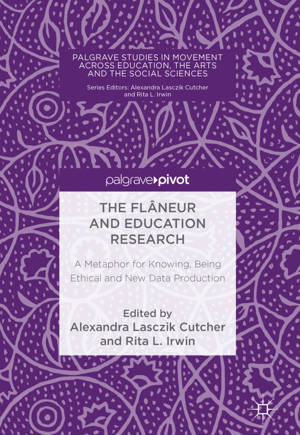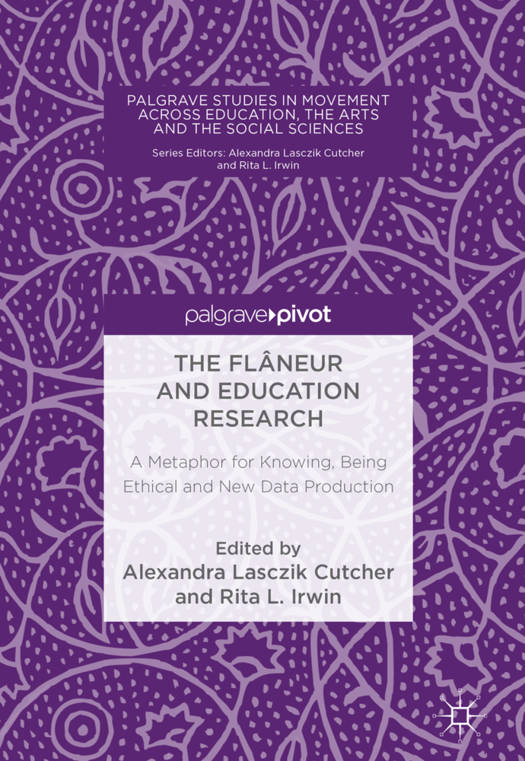
Door een staking bij bpost kan je online bestelling op dit moment iets langer onderweg zijn dan voorzien. Dringend iets nodig? Onze winkels ontvangen jou met open armen!
- Afhalen na 1 uur in een winkel met voorraad
- Gratis thuislevering in België vanaf € 30
- Ruim aanbod met 7 miljoen producten
Door een staking bij bpost kan je online bestelling op dit moment iets langer onderweg zijn dan voorzien. Dringend iets nodig? Onze winkels ontvangen jou met open armen!
- Afhalen na 1 uur in een winkel met voorraad
- Gratis thuislevering in België vanaf € 30
- Ruim aanbod met 7 miljoen producten
Zoeken
The Flâneur and Education Research
A Metaphor for Knowing, Being Ethical and New Data Production
€ 58,45
+ 116 punten
Omschrijving
This book creatively and critically explores the figure of the flâneur and its place within educational scholarship. The flâneur is used as a generative metaphor and a prompt for engaging the unknown through embodied engagement, the politics of space, mindful walking and ritual. The chapters in this collection explore sensorial qualities of place and place-making, urban spaces and places, walking as relational practice, walking as ritual, thinking photographically, the creative and narrative qualities of flâneurial walking, and issues of power, gender, and class in research practices. In doing so, the editors and contributors examine how flâneurial walking can be viewed as a creative, relational, place-making practice. Engaging the flâneur as an influential and recurring historical figure allows and expands upon generative ways of thinking about educational inquiry. Furthermore, attending to the flâneur provides a way of provoking researchers to recognize and consider salient political issues that impact educational access and equity.
Specificaties
Betrokkenen
- Uitgeverij:
Inhoud
- Aantal bladzijden:
- 160
- Taal:
- Engels
- Reeks:
Eigenschappen
- Productcode (EAN):
- 9783319728377
- Verschijningsdatum:
- 30/04/2018
- Uitvoering:
- Hardcover
- Formaat:
- Genaaid
- Afmetingen:
- 148 mm x 210 mm
- Gewicht:
- 381 g

Alleen bij Standaard Boekhandel
+ 116 punten op je klantenkaart van Standaard Boekhandel
Beoordelingen
We publiceren alleen reviews die voldoen aan de voorwaarden voor reviews. Bekijk onze voorwaarden voor reviews.










